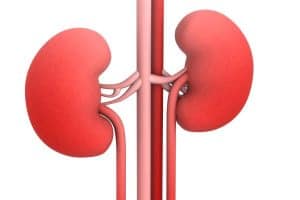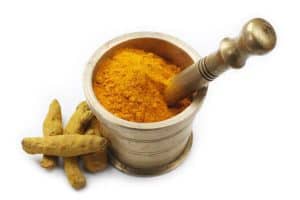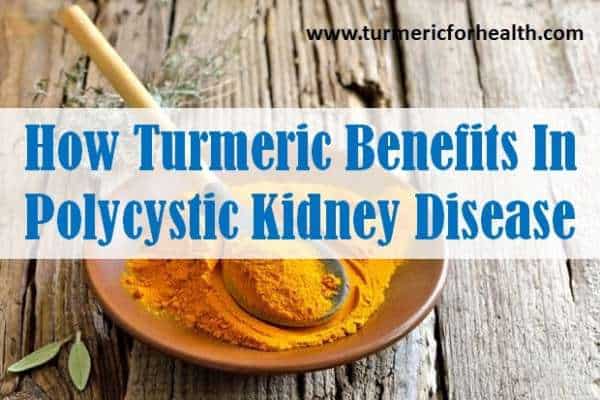Polycystic kidney disease (PKD) is a genetic disorder wherein multiple cysts develop in the kidney. Cysts are sac like structures that are filled with fluids.
There are two types of PKD:
- Autosomal Dominant Polycystic Kidney Disease: Child has 50% chance of developing PKD.
- Autosomal Recessive Polycystic Kidney Disease: Child has 25% chance of developing PKD.
Mutations occur in genes PKD1 and PKD2 which code for proteins polycystin 1 and polycystin2 respectively.
As a result of these mutations, kidney cells proliferate and divide repeatedly to form cysts which get filled with secreted fluid. Development of such cysts can eventually lead to kidney failure.
Sometimes symptoms do not manifest in some individuals due to which patients go undiagnosed. In other cases, symptoms are developed in late 20s. Few of the symptoms are:
- High blood pressure
- Pain in back or sides
- Blood in urine
- Urinary tract infections
- Headaches
- Kidney stones
- Kidney failure
Sometimes complications can arise outside the kidney:
- Formation of cysts in liver and pancreas
- Development of sacs in colon
- Heart valve abnormalities
- Aneurysm (inflation of arteries in the brain due to fluid build-up and bleeding)
Turmeric, a well-known herb, and spice is found to be therapeutic for this disease and also ameliorates symptoms and risk factors associated with it.
Table of Contents
How Turmeric protects kidney health?
Turmeric is commonly used to spice up and to add flavor to most Asian dishes. But that is not the only quality associated with it.
Turmeric has been used as a herb in various systems of traditional medicine especially Ayurveda.
It occurs as a rhizome in nature from which turmeric powder or turmeric oil is extracted. Two of its vital bioactive fractions are:
- Curcuminoids: They are a group of natural antioxidants that impart a yellow color to the herb. Curcumin is the most potent curcuminoid.
- Turmeric oil: This fraction comprises many aromatic compounds that impart aroma to the herb. They also possess healing properties.
Turmeric has anti-inflammatory, anti-oxidant, anti-pyretic, anti-cancer, anti-microbial and many other pharmacological properties.
Research proves that turmeric has renoprotective properties- it protects kidneys from disorders.
Antioxidant activity of turmeric helps in protecting the kidneys by preventing oxidative stress, increasing levels of antioxidant enzymes, reducing inflammation and preserving kidney function.
Turmeric has found to be effective in treating kidney disorders like diabetic nephropathy, kidney failure, drug-induced kidney toxicity etc.
How does turmeric help in polycystic kidney disease?

In this model, curcumin inhibited cyst development and enlargement. At a maximum dose, it showed 62% inhibition of cyst formation.
Curcumin did not cause any toxicity or cell death.
It reduced the activity of proteins that lead to abnormal cell growth and proliferation.
Apart from preventing cyst formation, it promoted normal kidney cell development.
A number of biochemical pathways and their components are involved in cyst formation. Unlike other drugs, curcumin does not attack only one target. I
t is proven that curcumin manipulates a number of components to prevent cyst formation.
Combination of curcumin and ginkgolide B is found to more effective in inhibiting cyst formation than individual herbs. Ginkgolide B is a bioactive compound obtained from a herb Gingko biloba.
The anti-cyst activity of these herbs is exerted by inhibiting the activity of cell signalling pathways that lead to abnormal cell growth.
7 Benefits of Turmeric in Risks Linked With Polycystic Kidney Disease
Following conditions are seen as complications and symptoms of polycystic kidney disease. Turmeric can help combat these conditions.
1. It attenuates Hematouria & Proteinuria
Hematuria is the presence of blood in urine while proteinuria is the presence of excessive proteins in urine. They occur as a result of improper kidney functioning.
Clinical trials prove that oral turmeric supplement can treat proteinuria and hematuria in patients suffering from kidney diseases.
2. Curcumin prevents Kidney stones
Kidney stones are aggregates of minerals found in the kidney.
If they are large in size they block the ureter and cause pain. Curcumin prevents development of kidney stones.
However turmeric as a spice is rich in oxalates. So if you are susceptible to developing kidney stones then limit intake of turmeric as a spice. (Read Does Turmeric Cause Kidney Stones?) One can opt for curcumin supplements in such cases.
3. It reduces High blood pressure
A common complication of Polycystic Kidney Disease is high blood pressure which increases susceptibility to heart diseases and stroke. Curcumin is good for heart health. (Read Turmeric for hypertension)
One research study proves that alcoholic extract of curcumin acts as a vasorelaxant- it dilates and relaxes blood vessels allowing smooth blood flow.
Turmeric supplementation is proven to reduce blood pressure in individuals suffering from a kidney disease named lupus nephritis.
4. It reduces Inflammation & pain
Enlargement of cysts can lead to pain in lower back, abdomen and sides.
Headaches are also a common symptom of Polycystic Kidney Disease. Turmeric is famous for its anti-inflammatory property and analgesic property.
As a part of a herbal supplement, turmeric has been used to treat inflammation in chronic kidney diseases. Find out how turmeric helps in treating pain.
5.It remedies fever
Fever generally occurs when the cysts rupture or get infected. Turmeric has anti-pyretic or anti-fever properties. A few remedies suggesting use of turmeric in fever are listed here.
6. It treats Urinary tract infection
Urinary tract infection is any infection occurring in any part of the urinary system.
Polycystic Kidney Disease can increase the risk of infection in cysts or any other part of the system. Turmeric has anti-microbial properties.
Research proves that a herbal preparation containing turmeric treats urinary tract infection. (Read Turmeric for UTI)
7. It protects from Liver toxicity
Polycystic Kidney Disease can also manifest as cysts in the liver.
Also, continuous use of medications can lead to liver toxicity.
Due to its antioxidant and anti-inflammatory properties curcumin plays a hepatoprotective role: protects the liver from disorders and drug-induced toxicity.
8. It protects from Post operative infections
Sometimes the disease tend to progress in a way that the only option is to undergo surgery for removal or replacement of kidney. Turmeric is proven to be therapeutic in case of kidney failure or surgery.
Apart from that, there are many other factors to be kept in mind to ensure the good health of an individual who has undergone surgery. Turmeric can help in post-operative care.
Dosage of Turmeric For Polycystic Kidney Disease

You can simply sprinkle turmeric in salads, soups, smoothies or use it in cooking.
Curcumin in turmeric is poorly absorbed in the body.
Taking turmeric with black pepper and oil increases the absorption.
Golden Paste combines these 3 elements making it an effective way of taking turmeric.
You can find the Golden Paste recipe here. It is also possible to make Golden Paste from fresh roots as well.
Start with small doses say ¼-1/2 tsp and increase gradually if no side effects are observed. The recommended dose is 1-2 tsp 2-3 times day (precisely 1 tsp 3 time a day).
Avoid taking it on an empty stomach. (Read Does turmeric cause acid reflux?) If taking large doses avoid taking it close to the time of taking medicines. (Read Black pepper in GP: Does it cause Drug interactions?)
The ideal dose depends on what suits you; some do fine on less some need more. Turmeric Milk and Turmeric Tea are also some great ways of taking turmeric.
If taking turmeric supplements, consult a health practitioner prior. If you need help identifying a good brand of turmeric check our recommendations on organic Turmeric Brands.
Precautions
Turmeric in a diet is safe but a few precautions need to be noted. (Read Side effects of turmeric)
Large doses of turmeric may cause gastric discomfort. Always start with small doses and increase gradually. Avoid taking turmeric on an empty stomach. (Read Can turmeric cause acid reflux?)
A few important precautions to consider while taking turmeric for kidney health is that turmeric as a spice is high in oxalates and also can contribute to dietary potassium.
If you are susceptible to kidney stones, limit intake of turmeric as a spice. (Does Turmeric Cause Kidney stones?)
In such cases, one can opt for curcumin supplements for therapy after consulting a health practitioner.
Turmeric has anti-platelet property. So if suffering from bleeding risk or taking blood thinners , consult a health practitioner before taking turmeric. Also if scheduled for surgery, it is advised to discontinue turmeric supplements 2 weeks prior to surgery to avoid bleeding risks.
Curcumin in turmeric causes gall bladder contraction. If suffering from active bile duct obstruction or gallstones this level of contraction may cause pain. (Read Is it safe to take turmeric if you have gallstones) However, many readers, safely continue consuming turmeric in diet even in gallstones.
Turmeric supplements should be avoided in pregnancy and lactation.
Curcumin in turmeric interferes in drug metabolism. Hence it is advised not to take turmeric supplements concomitantly with any medication. Maintain a 3-4 hour gap. It is best to consult a health practitioner about turmeric supplements.
Conclusion
Turmeric is one miracle herb that seems to be helpful in treating every next disorder. This holds true for even polycystic kidney disease. Being a genetic disease, turmeric can’t cure this ailment but can effectively control its progression and reduce the symptoms and risks associated with it.


what about in pills?
what dosage etc
thank you
Hugo
Hi. Please check this article on types of turmeric supplements available in the market: https://www.turmericforhealth.com/curcumin-benefits-and-dosage/8-popular-curcumin-supplement-types-in-market-today-a-quick-review
Raw turmeric powder has oxalates which may not be safe if one is prone to developing kidney stones. https://www.turmericforhealth.com/turmeric-queries/is-it-safe-to-take-turmeric-when-i-have-kidney-stones
Please consult your health practitioner before taking turmeric supplements.
how to take this as input to stomach
You can take Golden Paste. Start with small doses such as 1/4-1/2 tsp and if you see no side effects then increase the dose gradually to 1 tsp 2-3 times a day over a few weeks. Best taken with food to avoid acid reflux. Avoid taking it at the same time when you take meds.
https://www.turmericforhealth.com/turmeric-recipes/how-to-make-turmeric-paste-or-golden-paste
https://www.turmericforhealth.com/turmeric-recipes/how-to-make-golden-paste-from-raw-fresh-turmeric